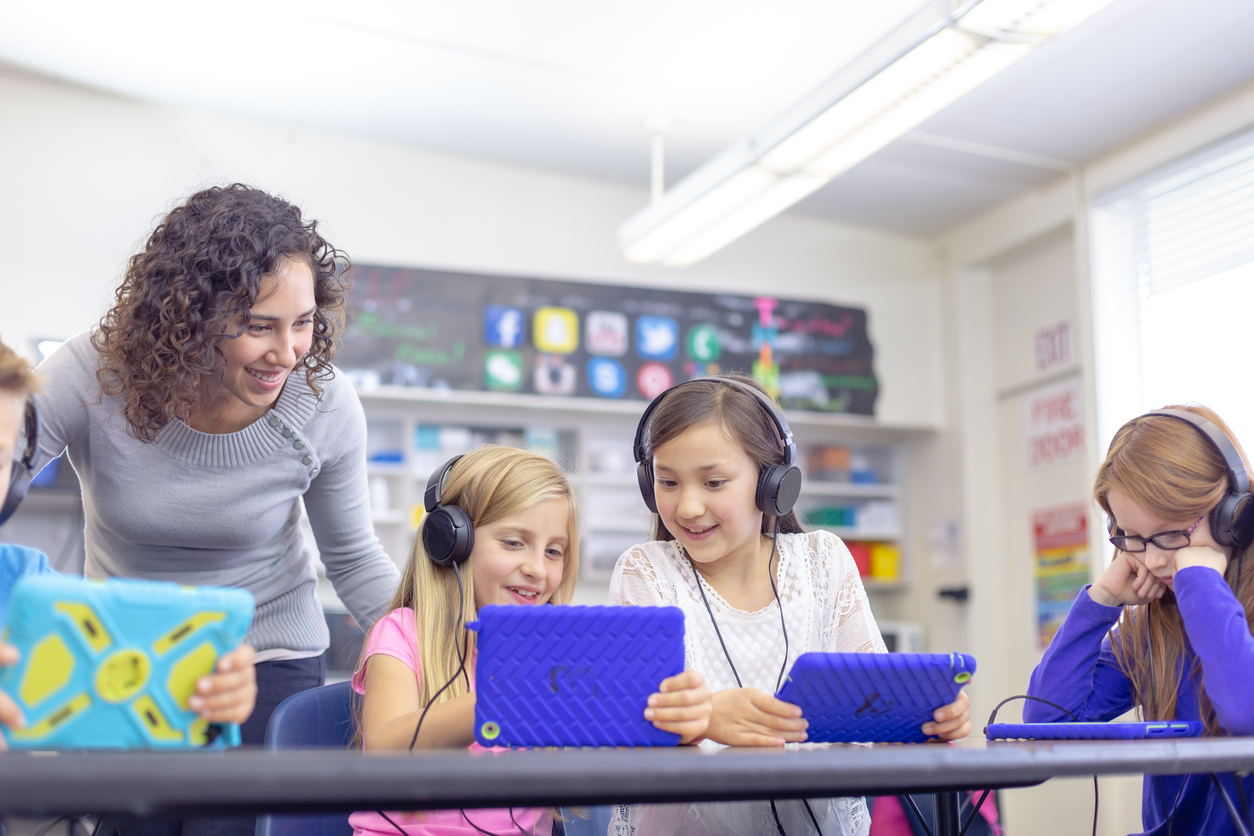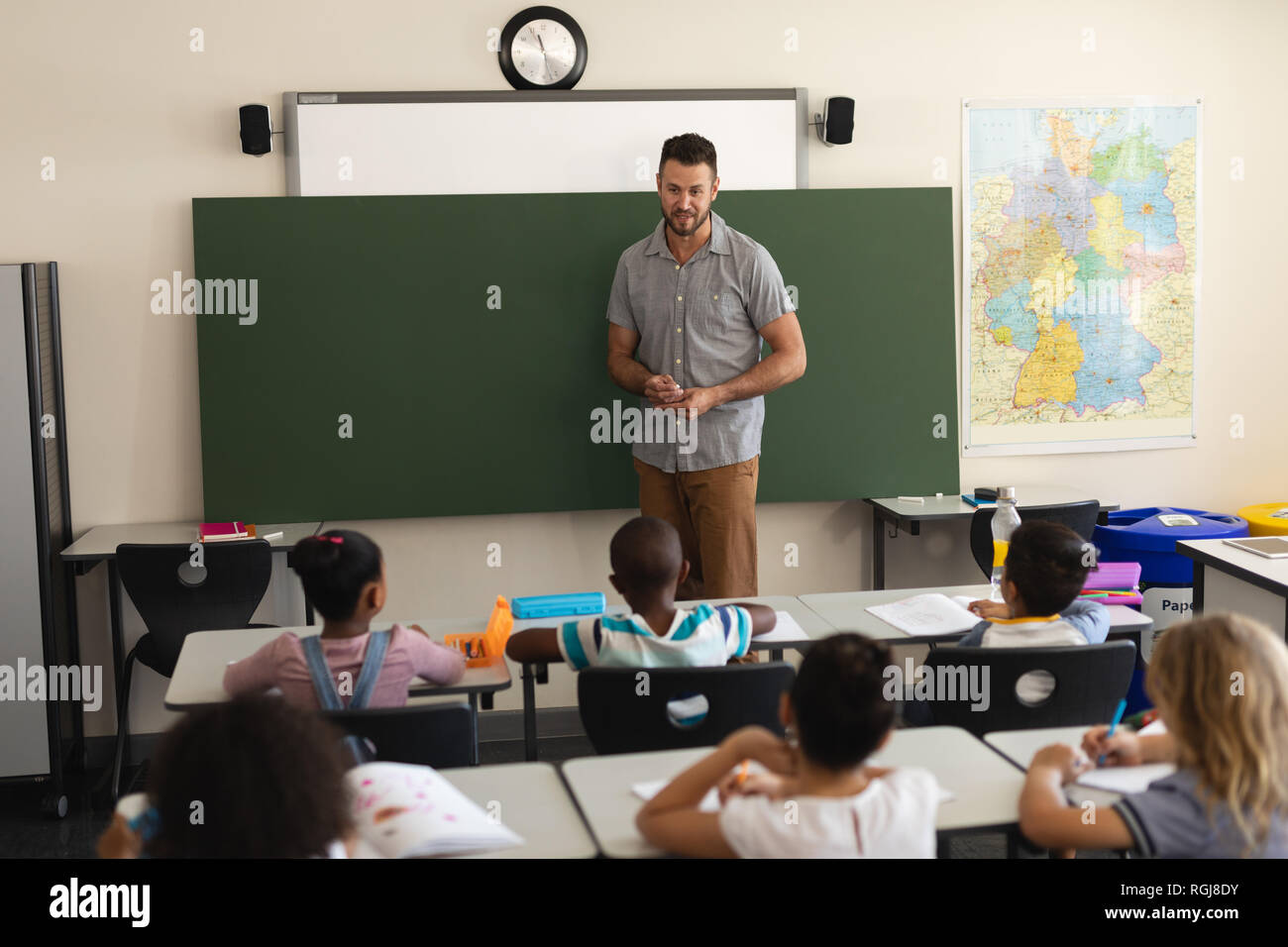Achieve Academic Success with Primary Science Tuition Singapore
Achieve Academic Success with Primary Science Tuition Singapore
Blog Article
A Comprehensive Guide to the Different Understanding Techniques in Key Science Guideline
The exploration of diverse discovering approaches in main science guideline offers a chance for teachers to boost pupil engagement and comprehension dramatically. By checking out hands-on knowing methods, inquiry-based strategies, and collective techniques, we can determine reliable practices that provide to various finding out designs. In addition, the integration of technology and distinguished guideline plays a critical function in promoting an inclusive atmosphere. Nonetheless, the inquiry stays: exactly how can these methods be successfully applied in the class to maximize their effect? The response exists in a closer assessment of each technique and its implications for teaching scientific research.

Hands-On Knowing Methods
Hands-on knowing methods play a critical function in key scientific research guideline, involving trainees in energetic expedition and experimentation. These techniques permit learners to communicate directly with sensations and materials, cultivating a much deeper understanding of clinical concepts. By utilizing manipulatives, models, and real-life experiments, instructors develop an environment where students can observe, hypothesize, and examine their concepts.
Such strategies not only improve understanding however likewise grow important thinking and analytical abilities. When students get involved in tasks like constructing simple makers, growing seeds, or carrying out chain reactions, they are encouraged to ask inquiries and look for solutions with their very own observations. This experiential method aids to demystify complex clinical principles, making them much more relatable and obtainable.
Furthermore, hands-on discovering promotes collaboration among peers, as students usually operate in groups to conduct experiments or share findings. This synergy not just improves their understanding experience but also establishes essential social skills. Ultimately, incorporating hands-on methods in primary scientific research instruction promotes a long-lasting love of discovering and inquisitiveness regarding the all-natural globe, laying a solid structure for future academic searches in scientific research and past.
Inquiry-Based Discovering
Inquiry-based understanding is an instructional approach that urges pupils to ask inquiries, check out phenomena, and create their very own understanding of scientific principles. This method moves the emphasis from traditional teacher-led direction to an extra student-centered experience, where learners take the initiative in their academic trip. By cultivating curiosity, inquiry-based knowing promotes deeper interaction with the material, permitting students to check out topics in a meaningful context.
In technique, this method frequently entails hands-on experiments, observations, and vital reasoning activities that line up very closely with the clinical method. Trainees are encouraged to develop hypotheses, design investigations, and analyze information, which grows crucial skills such as logical and analytical thinking. The function of the educator in this framework is to promote expedition, assisting students with the query process while urging independent idea and cooperation.
Additionally, inquiry-based understanding nurtures a feeling of possession over the knowing process, inspiring students to go after understanding actively. This technique not just enhances understanding of clinical principles yet additionally cultivates a lifelong love for knowing, furnishing pupils with the abilities essential to navigate a progressively complicated globe.
Collaborative Knowing Approaches
Joint discovering strategies empower pupils to take part in significant communications with peers, cultivating a common responsibility for their academic outcomes. In primary scientific research guideline, these methods urge students to interact to check out scientific ideas, fix troubles, and perform experiments (primary science tuition Singapore). By taking part in group activities, students can leverage diverse perspectives, allowing for richer understanding and retention of scientific expertise
One secret element of collective learning is the emphasis on interaction skills. Pupils need to verbalize their ideas, pay attention proactively to others, and bargain ideas, all of which are crucial proficiencies in both academic and real-world contexts. This social interaction not just improves their understanding of clinical concepts however likewise promotes team effort and conflict resolution skills.
In addition, this contact form joint understanding typically causes raised inspiration and involvement. When pupils see the worth of their contributions within a team, they are more probable to take possession of their understanding trip. Teachers can promote this process by making organized team tasks that straighten with educational program objectives while offering guidance on reliable cooperation strategies. On the whole, incorporating collective knowing strategies in main scientific research instruction cultivates a vibrant discovering atmosphere that prepares students for future scholastic and social difficulties.
Technology Combination in Scientific Research
The combination of innovation in key science guideline enhances discovering experiences by supplying innovative tools and resources that sustain numerous teaching methods, including joint learning - primary science tuition Singapore. Using digital platforms, simulations, and interactive applications allows pupils to engage deeply with scientific ideas, assisting in a much more hands-on approach to knowing
Online research laboratories, for circumstances, enable students to perform experiments securely and successfully, advertising inquiry-based learning. These tools can simulate real-world clinical scenarios, allowing trainees to picture complex procedures that would be difficult to duplicate in a standard classroom setting. Innovation cultivates communication and collaboration among students, as they can share findings and work together on jobs via on the internet platforms.
In addition, multimedia discussions and educational videos can enhance lessons by dealing with diverse knowing designs, making abstract concepts much more accessible. Information evaluation devices likewise equip students to gather and analyze clinical other data, enhancing crucial thinking skills. Overall, the calculated incorporation of technology in main scientific research direction not only improves interaction however additionally prepares pupils for a technically advanced culture, outfitting them with necessary skills for future clinical ventures.
Distinguished Direction Techniques
Differentiated direction strategies are essential for attending to the varied requirements of students in main science education. These strategies make it possible for educators to tailor their training methods to suit varying abilities, rate of interests, and discovering designs within the class. By using set apart guideline, educators can produce a comprehensive environment that promotes interaction and improves understanding of clinical principles.
One effective approach is to use versatile grouping, which allows students to work together with peers at comparable skill levels or with varying perspectives. This strategy urges peer knowing and advertises essential thinking. Additionally, supplying choices in projects can equip students, permitting them to choose tasks that resonate with their passions while still meeting curricular purposes.
In addition, incorporating tiered assignments is an additional valuable strategy. Deliberately jobs with differing levels More Help of intricacy, instructors can make certain that all trainees are properly tested, despite their efficiency. Utilizing developmental analyses to determine understanding more allows educators to change their training techniques dynamically, making certain that each student obtains the support they need.
Eventually, carrying out differentiated guideline approaches in primary science education and learning not only improves trainee discovering results but additionally cultivates an interest for scientific research, preparing trainees for future scholastic pursuits.

Final Thought
In recap, reliable primary scientific research instruction demands a complex strategy that incorporates hands-on understanding, inquiry-based methods, and collaborative techniques. The assimilation of technology and differentiated guideline further accommodates diverse knowing styles, cultivating an atmosphere for exploration and critical thinking. By applying these methods, teachers can enhance student involvement and comprehension, inevitably nurturing a long-lasting passion for science and questions. Such comprehensive methods are vital for developing informed and interested future researchers.
The expedition of diverse learning techniques in primary scientific research direction presents a chance for instructors to improve pupil involvement and comprehension significantly.Hands-on discovering techniques play a pivotal duty in key scientific research guideline, engaging trainees in active exploration and experimentation.Inquiry-based understanding is a training strategy that encourages pupils to ask inquiries, examine phenomena, and construct their very own understanding of clinical concepts.Collective discovering methods encourage pupils to involve in meaningful interactions with peers, fostering a shared responsibility for their instructional results. Generally, including collective knowing strategies in key scientific research direction cultivates a vibrant discovering setting that prepares students for future scholastic and social obstacles.
Report this page